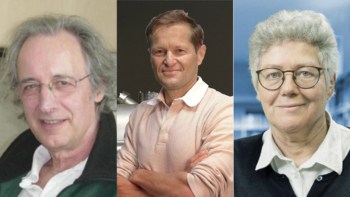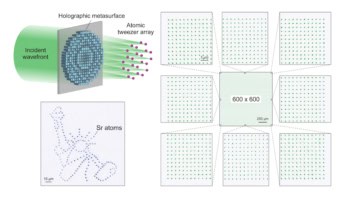The 2005 Nobel Prize in Physics has been awarded to three physicists working in the field of optics. Roy Glauber of Harvard University in the US receives one half of the prize "for his contribution to the quantum theory of optical coherence", while the other half goes jointly to John Hall of JILA at the University of Colorado in the US and Theodor Hänsch of the LMU in Germany "for their contributions to the development of laser-based precision spectroscopy, including the optical frequency comb technique".
Glauber is credited with establishing the basis of quantum optics by showing how quantum theory has to be formulated to describe the detection of photons. To do this he used quantum electrodynamics, which describes how photons absorbed by a detecting medium cause electrons to be emitted from that medium. Since it is these electrons — not the photons — that are counted in the detector, information about the behaviour of these photons is always indirect. Glauber’s work clarified the fundamental differences between thermal light sources such as light bulbs, which have a mixture of frequencies and phases, and coherent sources of light such as lasers and quantum amplifiers.
Hall and Hänsch, meanwhile, have been recognized for their work on using lasers to carry out extremely precise spectroscopic measurements. In particular, they have developed a technique known as the optical frequency comb, which uses interference effects to generate a series of femtosecond-length pulses. These methods have been used to probe the fine structure of atoms and the properties of atomic nuclei, as well as develop a number of applications including extremely accurate atomic clocks and improved GPS technology.
Glauber was born in 1925 in New York and received a PhD in physics in 1949 from Harvard. John Hall was born in 1934 in Denver, US, gaining his physics PhD in 1961 from the Carnegie Institute of Technology in Pittsburgh, while Theodor Hänsch was born in 1941 in Heidelberg, Germany, and received his PhD in physics in 1969 from the University of Heidelberg.


